Hawgood, Leadership Team Outline Diversity Vision for UCSF
A crowd of almost 250 people gathered at Cole Hall on April 7 to listen to UC San Francisco Chancellor Sam Hawgood, MBBS, outline his vision for a more inclusive campus environment.
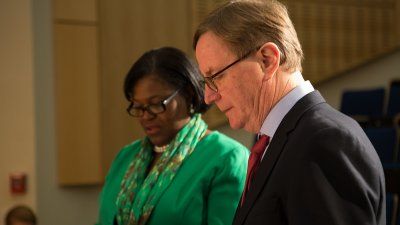
University of California San Francisco
A crowd of almost 250 people gathered at Cole Hall on April 7 to listen to UC San Francisco Chancellor Sam Hawgood, MBBS, outline his vision for a more inclusive campus environment.

UC San Francisco’s Robert Wachter, MD, a leading national expert on patient safety who helped pioneer hospital medicine, has landed at number one on Modern Healthcare magazine’s annual list of the most influential physician executives.
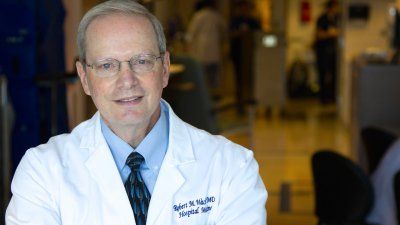
Researchers at UCSF have pulled aside the curtain on a protein informally known as the “wasabi receptor,” revealing at near-atomic resolution structures that could be targeted with anti-inflammatory pain drugs.
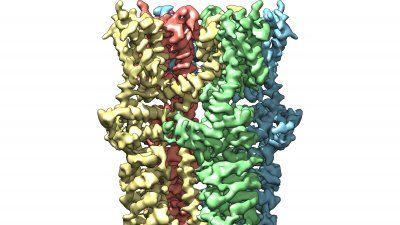
Two UCSF students have each won a $2,500 University of California Global Food Initiative Grant to pursue their inventive projects to help people eat healthier.

In patients who received a stent to treat coronary artery blockage, those who experienced bleeding requiring hospitalization in the years after the procedure faced an increased risk of death that was similar to the risk faced by those who subsequently had heart attacks, according to a study by UCSF and Kaiser Permanente.

The rate of emergency department visits in California for non-injuries has risen while the rate of visits for injuries has dropped, according to a new study led by UCSF.

Only a few U.S. nursing home residents who undergo lower extremity revascularization procedures are alive and ambulatory a year after surgery, according to UCSF researchers, and most patients still alive gained little, if any, function.

For the first time, scientists have isolated beige fat in adult humans that's able to convert energy-storing white fat cells into the energy-burning kind.
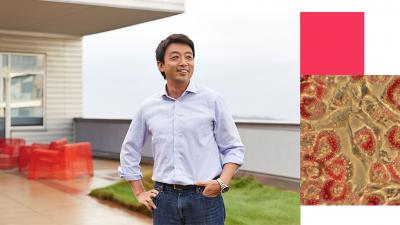
When leaders at UC San Francisco were planning to build UCSF Medical Center at Mission Bay, they made sure that state-of-the-art energy efficiency systems were integrated in the design of their new buildings, which led to a check from PG&E for $804,000 in incentives that came via that focus on sustainability and energy efficiency.
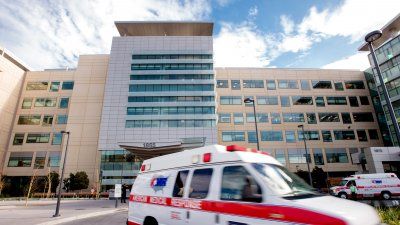
UCSF scientists have identified a biological escape hatch that explains the resistance to targeted drug treatment in some lung cancer patients.

The evolution and development of structures as diverse as limbs, fingers, teeth, somites and vertebrae may have more in common than once believed, according to a new study.

A blood test undertaken between 10 to 14 weeks of pregnancy may be more effective in diagnosing Down syndrome and two other less common chromosomal abnormalities than standard non-invasive screening techniques.

Christine Miaskowski, PhD, RN, the Sharon A. Lamb Endowed Chair in Symptom Management Research in the UCSF School of Nursing, is one of 19 nurse researchers being inducted into the International Nurse Researcher Hall of Fame by the Honor Society of Nursing, Sigma Theta Tau International (STTI).
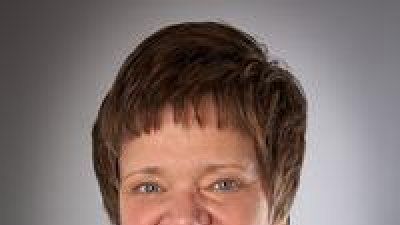
Robert Wachter chronicles the challenges of digitizing medicine and health care — and the potential technology holds — in his new book, 'The Digital Doctor.'
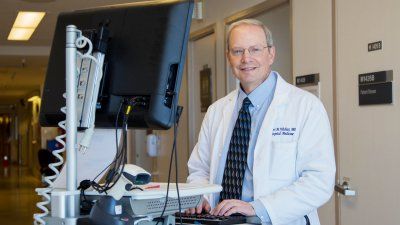
A research team, led by a UCSF biologist, has isolated energy-burning “beige” fat from adult humans, which is known to be able to convert unhealthy white fat into healthy brown fat.

UCSF’s Esteban Burchard has been appointed to an expert panel advising the National Institutes of Health (NIH) on how to develop President Barack Obama’s Precision Medicine Initiative.
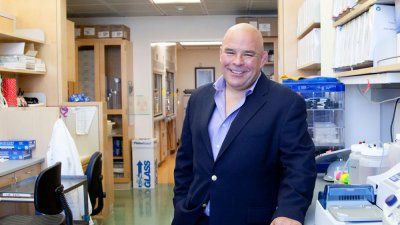

A research team led by UCSF scientists has found the genetic signature of enterovirus D68 in half of the California and Colorado children diagnosed with acute flaccid myelitis – sudden, unexplained muscle weakness and paralysis – between 2012 and 2014.
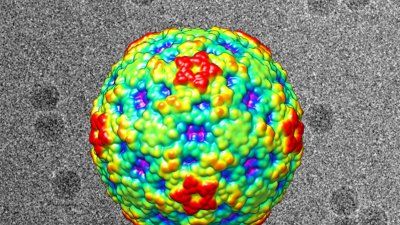
José Carrasco Sandoval, Laura Aguilar and Angie Celis typify the caliber of talent UC San Francisco attracts. All three have been chosen to join the School of Dentistry’s Class of 2019. Unlike most of their peers, all three are “DREAMers.”

UCSF is launching a revamped Smokefree Movies website that offers the public unusual insight into Hollywood’s role in the global tobacco epidemic, projected to kill one billion people this century.

Male registered nurses make more than $5,000 per year than their female counterparts across most settings, specialty areas and positions, according to a UCSF-led study.
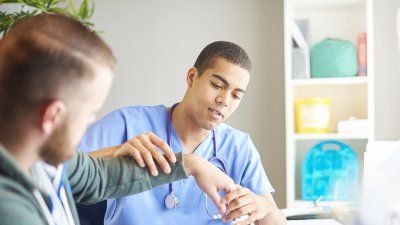
UCSF Medical Center and John Muir Health have finalized an agreement that will serve as the foundation for a Bay Area health care network intended to provide patients with high quality care at an affordable price.

A research team at UCSF has won a five-year award of $14.1 million from the Patient-Centered Outcomes Research Institute to investigate whether a personalized approach to breast cancer screening is as safe and effective as annual mammograms.
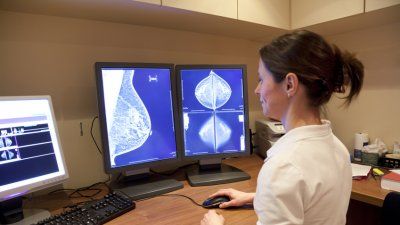
A new study of acute lymphoblastic leukemia led by UCSF researchers puts an intriguing new twist on anti-cancer strategies.

To mark UC San Francisco’s 150th anniversary, the Alumni Association of University of California San Francisco (AAUCSF) is honoring 150 alumni of UCSF's four professional schools (Dentistry, Medicine, Nursing, and Pharmacy), the Graduate Division, and training programs with an Alumni Excellence Award.
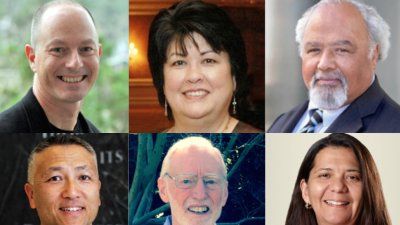
UCSF Chancellor and Professor Emeritus J. Michael Bishop, MD, Professor Emeritus Harold Varmus, MD, and Chancellor and Professor Emeritus Susan Desmond-Hellmann, MD, MPH, will be highlighted for their pioneering work on cancer in the Ken Burns-produced PBS documentary series “Cancer: The Emperor of All Maladies,” which airs March 30-April 1, 2015.
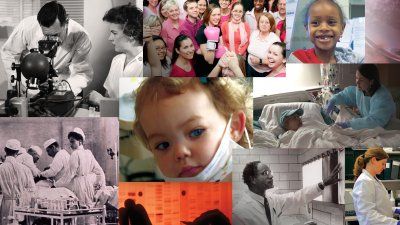
Health and Human Services Secretary Sylvia Mathews Burwell said precision medicine will help researchers and doctors develop better, targeted medicine during her visit to UCSF’s Mission Bay campus Thursday.

The School of Medicine Class of 2015 fourth-year medical students gathered on Friday to learn where they "matched," and the hospital or program where they will spend the next four or five years training as resident physicians.

William DeGrado, PhD, a UC San Francisco researcher, has won a prestigious award from the Protein Society, an international organization dedicated to supporting protein research.
